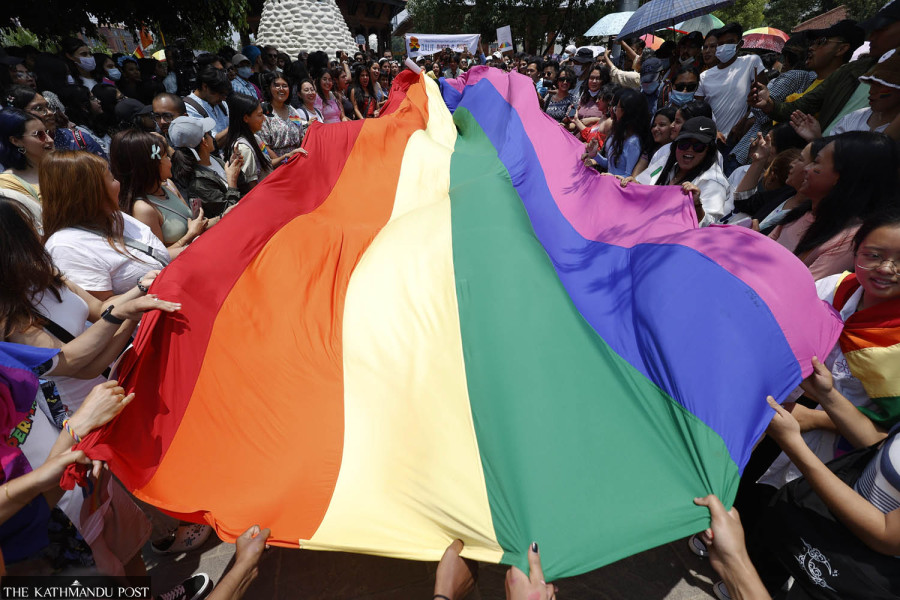Editorial
Rainbow weddings
Supreme Court’s landmark decision on same-sex marriage sets the tone for a more inclusive Nepal.
If vermillion is the social colour code for Nepali weddings, we have just added another one, and that is a rainbow. A code that accommodates all hues and shades, the rainbow is an umbrella colour to identify a multitude of sexual orientations. As Nepal’s non-heteronormative community signs off a successfully organised pride month of June, there is much more to celebrate this time—the registration of same-sex marriage. Love has triumphed over unfair social taboos and archaic governmental laws.
A single bench of Justice Til Prasad Shrestha on Tuesday issued an interim order in favour of the registry of same-sex marriage, citing Article 18 (1) and Article 69 (1) of the Constitution of Nepal, which ensure the rights of individuals to marry the person they want. The judgement is manna for the non-heteronormative couples whose marriages had gone unrecognised. Apart from cementing the formal recognition of same-sex marriages, the judgement has established the supremacy of individual choices over social taboos and archaic laws. And that is a significant triumph not only for the non-heteronormative community but for each Nepali individual who cares about justice, rights and individual human agency.
The landmark judgement by Nepal’s top court has also paved the way for societies in the neighbourhood to open themselves to acknowledging and legally recognising the varied sexual choices of individuals. In neighbouring India, the legal system still does not recognise same-sex marriage, and the government continues to oppose it, citing the need to keep its “social fabric” intact, although some polls show that over half the population is in favour of legalising it. As Indians await a similarly positive response from the judiciary and the legislative, the Indian media has been awash with news about the non-heteronormative community’s legal victory in Nepal following the apex court order. At a time when global attitudes about same-sex marriage are changing, with more and more people accepting such marriages, South Asian societies cannot remain burdened by the flawed notions of gender and sexual purity. Nepal is now on its way to shedding those garbs of purity towards a more humane society, a victory for all of the country.
There remain some procedural hurdles on the way ahead, as the government is yet to furnish its answers on the public interest litigation. However, the government now has no alternative but to respond positively, in line with the demands of an increasingly progressive worldview. If a society’s commitment to human freedom is judged based on how respectful towards its members, especially those belonging to minorities, Nepal has an important chance to prove its progressive nature in this case. Not only should the government not forgo this opportunity, it should also work actively to make relevant laws and build institutions that support same-sex marriages and such relationships. In doing so, Nepal can also be a trailblazer in the South Asian neighbourhood, much of which still remains gripped by taboos and legal hurdles in recognising non-heterosexual and non-heteronormative relationships.




 13.12°C Kathmandu
13.12°C Kathmandu














